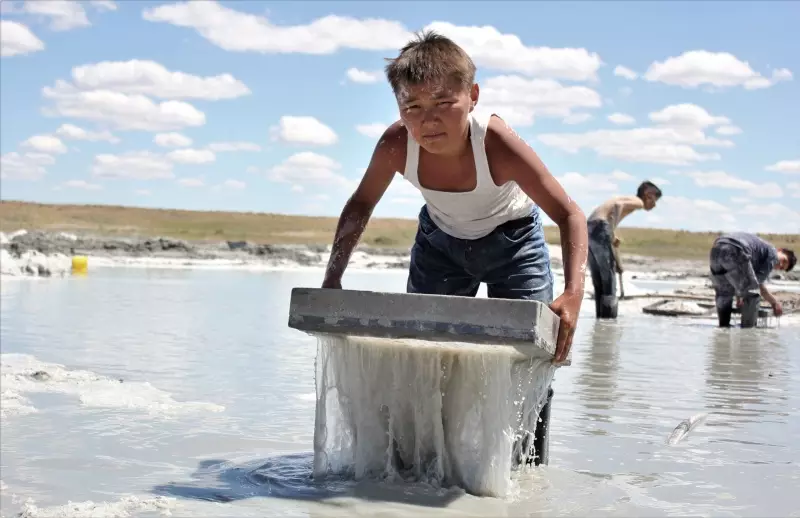The cinematic narrative of “Bauryna Salu,” Kazakhstan’s official submission for the Best International Feature Oscar, has ignited a conversation about traditional family dynamics within a rapidly modernizing world. Acquired by New York-based Willa for worldwide distribution, this film is set to capture audiences both in theaters and on streaming platforms in 2025. Its director, Askhat Kuchinchirekov, along with a talented cast featuring Yersultan Yerman and Aidos Auesbay, crafts a poignant tale rooted in nomadic customs that challenge the concept of familial bonds.
At the film’s core lies the practice of “Bauryna Salu,” where first-born children are entrusted to their grandparents’ care, often at the expense of their emotional ties to their biological parents. This cultural tradition provides a rich backdrop for the protagonist Yersultan, who embarks on a bittersweet journey as he grapples with a complex emotional landscape. Structured around the themes of abandonment, love, and grief, the narrative delves deep into the psyche of a child who is both cherished and estranged.
The essence of this tradition is complicated: while it highlights the respect and reverence for older generations, it also creates dissonance within the foundational family unit. As Yersultan grows up in the loving arms of his grandmother, he simultaneously cultivates a growing resentment towards his parents, whose absence looms large in his emotional hierarchy. People outside this cultural context may find these nuances baffling, but the film serves as a universal exploration of alienation that many can relate to.
The film takes a dramatic turn with the poignant death of Yersultan’s grandmother when he is just twelve years old, mandating a return to his biological family—strangers in his own story. It’s within this upheaval that audiences witness Yersultan’s painful odyssey of self-discovery and the painstaking effort to reconcile with his estranged father. This transition is not merely a clash of cultures; it is a deep exploration of grief and identity that reverberates long after the credits roll.
Kuchinchirekov’s directorial prowess is evident through the film’s ability to evoke a spectrum of emotions, allowing viewers to navigate the turbulent waters of Yersultan’s turmoil. As he seeks to mend the fractured ties with his father, themes of vulnerability and resilience emerge, illuminating the deeply human quest for belonging—not just to a family, but to oneself.
Bauryna Salu is not just a narrative about one boy; it symbolizes a universal struggle against the tides of tradition and modernity. Its poignant exploration of familial duty versus personal desire resonates on multiple levels, making it an essential film in today’s dialogue about identity. The accolades it has received—ranging from Best Youth Film at the Asia Pacific Screen Awards to Best Film at the Baku International Film Festival—attest to its critical acclaim and societal impact.
Willa’s founder, Elizabeth Woodward, succinctly captures the essence of the film: “Bauryna Salu resonates deeply with our commitment to amplifying culturally rich, socially important stories.” This underscores the growing recognition of the need for diverse narratives that bring light to differing cultural practices, underlining the shared human experiences they encompass.
With its participation in the sanctioned global discussions on family, loss, and cultural identity, “Bauryna Salu” stands as a significant milestone in Kazakhstan’s cinematic landscape. Willa’s acquisition signifies an encouraging trend towards inclusivity in storytelling, particularly in the realm of international features. As audiences await its release in 2025, the film promises not only to be a window into Kazakh culture but also a mirror reflecting our shared human experiences.
“Bauryna Salu” emerges as a compelling narrative that transcends cultural boundaries, highlighting the emotional weight of familial connections. As it prepares for its international debut, it invites audiences around the globe to engage with a story that challenges perceptions of love and belonging in an era marked by disconnect. The film’s commitment to truth and emotional depth ensures its place as a thought-provoking addition to the cinematic dialogue of our time.


Leave a Reply